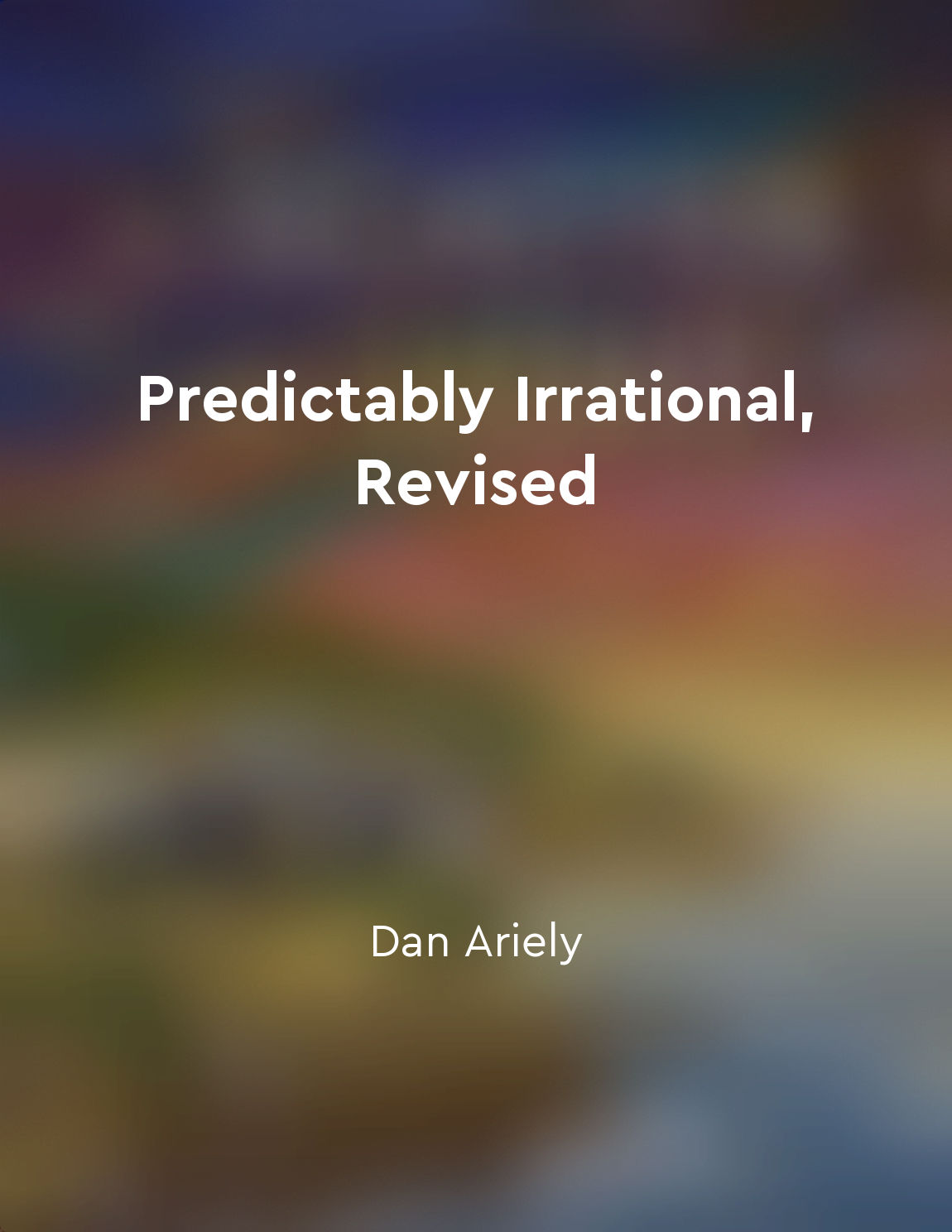We compare everything to a reference point from "summary" of Predictably Irrational, Revised by Dan Ariely
Our minds are constantly making comparisons. When we encounter something new, our brain automatically starts looking for a reference point to compare it to. This comparison helps us make sense of the world around us and determine how we feel about certain things. These reference points can come from various sources - past experiences, expectations, social norms, or even arbitrary numbers. For example, when we see a price tag, we immediately compare it to our internal reference point for that particular item. If the price is lower than what we expected, we feel like we're getting a good deal. But if it's higher, we might feel like we're being ripped off. Reference points can also affect our perception of value. In one study, participants were asked to taste two glasses of wine - one labeled as a cheap bottle and the other as an exp...Similar Posts
Group dynamics impact individual behavior
The way people behave is influenced by the groups they find themselves in. This is a fundamental truth about human nature that ...
Consistent study habits help in retaining information over time
Developing consistent study habits is crucial for the long-term retention of information. When information is revisited and rei...
The selfserving bias is the tendency to attribute personal successes to internal factors and failures to external factors
The self-serving bias is a pervasive cognitive bias that shapes the way individuals perceive and interpret their own successes ...
Economic systems vary in how they allocate resources and distribute goods and services
Different economic systems have their own unique ways of deciding how resources should be allocated and goods and services dist...

Irrationality can stem from conflicting desires or beliefs
Irrationality can arise when an individual holds conflicting desires or beliefs that cannot be reconciled. These conflicting de...
The brain is the seat of consciousness
The brain is the most complex structure in the known universe, a three-pound organ that contains hundreds of billions of cells....
Making informed decisions
To make informed decisions means to have all the necessary information before making a choice or taking action. It involves gat...
Reward structures must align with intrinsic motivations
Motivation often stems from two primary sources: intrinsic and extrinsic. Intrinsic motivation arises from within, driven by pe...
Interpersonal relationships are crucial for social wellbeing
Interpersonal relationships play a vital role in shaping our social wellbeing. Human beings are inherently social creatures, an...
Seek opportunities for growth
Seeking opportunities for growth is a key principle when it comes to building wealth over time. It involves looking for ways to...

